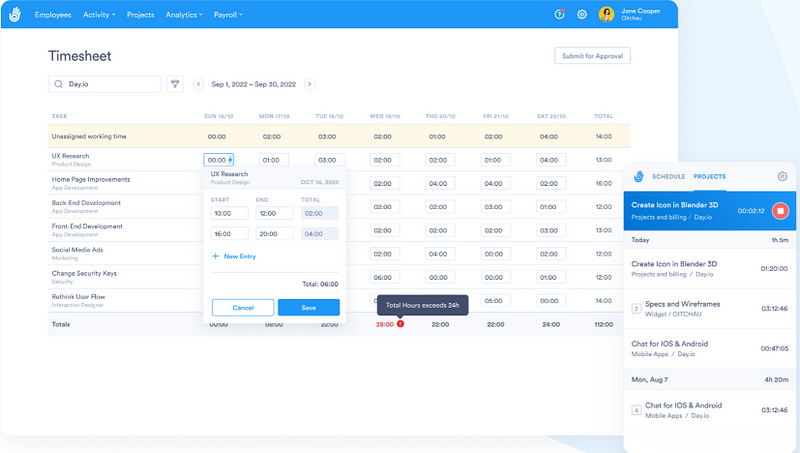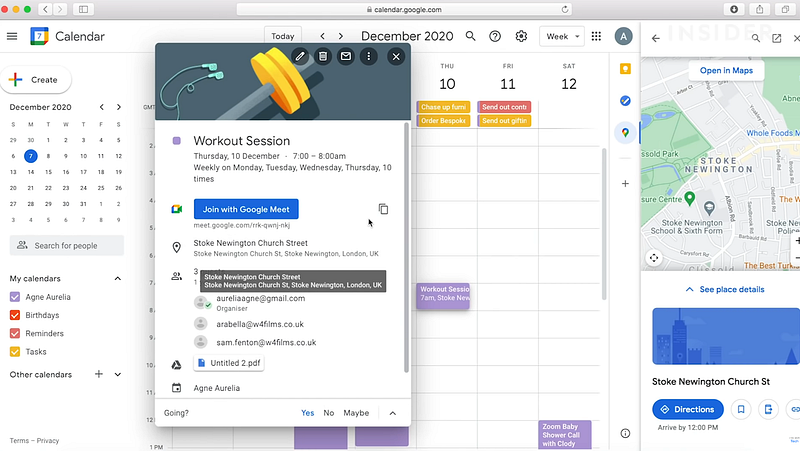Managing time efficiently is crucial for completing projects successfully, as it helps to optimize productivity and minimize wasted time. Whether working on a personal or professional project, adequate time management strategies can ensure you complete your work on time and achieve your goals.
In this article, we will discuss the importance of time management in project completion and provide you with 15 highly effective strategies that you can use to manage your time more efficiently. Additionally, we’ll introduce you to some tools that can help you implement these strategies and achieve better time management.
So, whether you’re a project manager, team leader, or someone who wants to improve their time management skills, read on to discover the top time management strategies for projects.
Throughout this article, we’ll discuss:
- Importance of Time Management Strategies for Project Management
- 15 Highly Effective Time Management Strategies for Projects
- Top Time Management Tools for Utilizing Your Strategies for Better Time Management
- Wrap-up: Top Time Management Strategies for Projects
Importance of Time Management Strategies for Project Management
When managing a project, it is essential to have a well-defined strategy for allocating time and resources. With an effective plan, you could get everything done on schedule. This can lead to missed deadlines, delayed completion dates, and unhappy customers or stakeholders.
Time management strategies are critical for project managers and team leaders who want to ensure their projects run smoothly and efficiently. Now we’ll run through the top benefits of having effective time management strategies in place:
1. On-time Completion
The most obvious benefit of having an effective time management strategy is that it enables project managers to complete projects on schedule. With a reliable plan, you can ensure all tasks are completed within the allocated time frame and avoid costly delays or unforeseen obstacles.
Also, well-defined strategies for better time management make it easier for project managers to track progress and stay on top of tasks. This helps to ensure projects move steadily and that all stakeholders are informed along the way.
2. Improved Productivity
One of the biggest headaches for project managers is dealing with distractions and time-wasting activities. Time management plans help minimize these distractions and ensure all resources are used efficiently and effectively. This allows the team to focus on their tasks and maximizes their productivity.
An effective strategy can also reduce the risk of burnout by ensuring that employees have enough downtime between tasks or projects. This allows everyone to relax and recharge, so they can return refreshed, energized, and ready for the next task.
3. Better Quality Results
Even if you complete your project on time, it will only be successful if the results are of good quality. This is where strategies for time management come in handy. A clear plan lets you focus on each task and ensure it is completed to the highest possible standard.
Also, having an effective strategy means that tasks are broken down into manageable chunks so that team members can dedicate their energy and attention to completing them successfully. This helps to minimize mistakes and ensures all stakeholders remain satisfied with the finished product or service.
4. Reduced Stress and Anxiety
In the workplace, poor time management can also have negative effects on mental health. Feeling constantly stressed and overwhelmed can lead to burnout, decreased productivity, and poor work performance. Therefore, it’s crucial for project managers and team members to have effective time management strategies in place to manage their workload and reduce stress.
This helps minimize stress or anxiety as everyone knows their responsibilities and deadlines. It also reduces the chances of last-minute rushes or unexpected problems arising due to inadequate planning.

5. Increased Team Morale
When project managers have effective time management plans, it can help increase morale and motivation within the team. This is because people feel more secure in knowing that tasks are being completed on schedule and that they have enough time to complete their work.
In addition, when everyone knows their roles and workflow process, there’s less room for conflict or confusion. This helps create a healthier working environment where everyone feels comfortable and supported.
6. Improved Communication and Coordination
When you know how to use your time and organize your tasks, it makes it easier for your team members to coordinate and communicate effectively.
A time management plan also includes risk mitigation measures that can help you identify potential problems and prevent them from occurring. It makes solving issues as they arise easier, which helps improve communication between team members and stakeholders.
15 Highly Effective Time Management Strategies for Projects
Now that we’ve become familiar with the benefits of time management strategies for project completion, let’s go into some of the most effective strategies you can use to manage your time better.
1. Plan and Have To-Do List
The first step towards successful project completion is to make a plan. By making a list of tasks you need to accomplish for the project, you can easily track your progress and identify the scopes and tasks for your project. Additionally, having an accurate record of all tasks will help you stay organized and focused throughout the process.
Here are some benefits of using to-do lists:
- Helps you prioritize tasks
- Keeps you accountable
- Gives a better overview of the project
- Motivates you to stay on track
- Reduces stress by providing clarity

2. Define Your Priorities
Management professionals and leaders often rely on Eisenhower’s Urgent-Important Matrix, which divides tasks into four categories:
- Important and urgent (tasks that you must do immediately)
- Important but not urgent (longer-term tasks)
- Urgent but not important (distractions from more important tasks)
- Not important and not urgent (time wasters).
By determining the importance of each task, you can quickly prioritize them and focus on the high-priority tasks. This will help ensure that the project is completed on time.
3. Breakdown a Large Work
Breaking down a large project into smaller, manageable tasks can help you stay organized and focused on the job. Additionally, breaking your project into smaller chunks can help you identify any blocks or obstacles that may arise along the way.
Also, it’s easier to follow small tasks, and it will help you complete the project faster. This way, you can avoid feeling overwhelmed by a large project and ensure all tasks are completed on time.
4. Schedule Specific Times for Emails and Communications
How many times have you been distracted by emails and spent hours on them? To avoid this, set specific times for checking your emails. This way, you can manage your time more efficiently and focus on the project.
Also, don’t forget to keep less critical notifications off during work hours. This way, you’ll be able to stay focused on the task at hand and avoid any distractions that might hinder your progress.
The following tips can also help to keep emails from distracting you:
- Schedule time for emails and stick to it
- Turn off notifications on all devices
- Set up an automated response with a polite reminder that you don’t check your email during certain hours.
5. Limit Multitasking Temptations
While multitasking may seem an excellent way to get things done quickly, it can have the opposite effect. Studies have found that multitasking can lead to decreased productivity and performance, so limiting your multitasking temptations when working on a project is essential.
Instead of tackling multiple tasks simultaneously, focus on completing one task at a time and taking breaks. This will help you stay focused and motivated as you achieve your project.
6. Use Scheduler and Calendar Apps
One proven strategy for better time management is to utilize a scheduler and calendar apps. These tools can help you plan your day, week, or month and remind you of upcoming tasks. Additionally, they allow you to set specific deadlines for each task and prioritize tasks according to their importance.
Many free calendar apps available online will make it much easier to keep track of your projects and manage your time better. For example, Calendly and Google Calendar are free and user-friendly tools for scheduling events and tasks.
7. Reflect at the End of the Day
Even if you have solid time management strategies, taking a step back and reflecting on your progress is essential. Doing this will help you identify areas where you can be more effective or efficient in completing your project.
At the end of each day, reflect on what worked and didn’t. This will help you plan better for the next day and ensure that all tasks are completed within the timelines set out for them.
8. Plan for Weeks and Months
When you create your project plans, planning for the day or week and the upcoming months is essential. This way, you can set goals and create a timeline that will help keep you on track and ensure all tasks are completed in time. Additionally, planning ahead of time enables you to anticipate any risks or challenges associated with the project and adjust your plans accordingly.
9. Take Breaks and Time Offs
Taking regular breaks is essential for successful project completion and you should always include time offs in your time management strategies. Taking breaks can help you boost productivity, reduce stress, improve mental health, and increase focus.
Additionally, taking some time off from work can help you avoid burnout and ensure that all tasks are completed with quality. So make sure to schedule regular breaks and give yourself enough time to rest during the project completion process.
10. Remember the 80/20 Rule
One of the most fundamental time management strategies for successful project completion is remembering the 80/20 rule. This rule suggests that 20 percent of your efforts will yield 80 percent of the results, so it’s important to focus on the most important tasks first.
By prioritizing tasks and focusing on those with a greater impact, you can maximize efficiency and ensure your time is spent wisely. Additionally, this approach allows you to stay organized and get more done in less time.
11. Delegate Tasks
Delegating tasks is a great way to maximize your time. When delegating tasks, you should ensure the person assigned has the skills and experience necessary to complete the job. Additionally, setting clear expectations and providing feedback on their progress is essential.
By delegating tasks, you can free up more time to focus on other aspects of the project or take breaks when needed. This will help you stay focused and productive throughout project completion.
12. Anticipate Risks
As a project manager or team leader, it’s important to anticipate any risks that may arise during the project. This will help you identify potential problems and plan for solutions before they occur.
For example, if you know the project will require a lot of resources or input from other departments, plan accordingly by giving yourself enough time for these tasks. Knowing and planning ahead of time can help you stay on track throughout the entire process and ensure successful project completion.
13. Communicate Clearly
Lack of communication can lead to misunderstandings, which can harm project completion. Therefore, it is important to ensure all team members are communicating clearly and effectively.
This includes setting expectations for communication and ensuring everyone is aware of their responsibilities. Additionally, having regular meetings and check-ins can help keep everyone on track and motivated throughout the project’s completion.

14. Set Shorter Personal Deadlines
Setting shorter personal deadlines can help you stay motivated and focused on the task at hand. This strategy will also give you a sense of urgency and push you to complete your tasks more quickly.
Moreover, setting short-term goals can help keep procrastination in check by giving you something tangible to strive for. Additionally, it allows celebrating successes along the way which can motivate you further.
15. Utilize Time Management and Productivity Apps
Using time management, and productivity apps can be a great way to help you stay organized and on track. Various options are available, such as project management tools, task-tracking software, time-tracking apps, calendar reminders, and more. Depending on your needs, there is likely an app that can help you manage your projects better.
Time management and productivity apps can provide benefits such as:
- Scheduling tasks easily
- Automating processes for repetitive tasks
- Tracking progress quickly
- Optimizing the use of resources
- Setting up deadlines for completion
Top Time Management Apps for Utilizing Your Strategies for Better Time Management
When you’re trying to manage your time efficiently, it can be helpful to use tools that will help you implement and track your strategies. Here are a few popular time management applications:
1. Day.io – Overall the Best Tool for Effective Time Management Strategies
Day.io is an all-in-one time management tool designed to help you keep track of your tasks, goals, and progress so that you can maximize your productivity. The beginner-friendly time clock allows you to set goals and tasks, keep track of your progress, and review your work history in an easy-to-understand interface.

The app also integrates smoothly with many other productivity tools, such as Asana, Jira, and Trello, allowing you to access the documents you need quickly. Day.io also has an employee scheduler that allows you to coordinate tasks with team members quickly and easily.
Features
- Progress tracking for tasks and projects
- Multiple task management for clients
- Automated time tracking with GPS and biometric authentication
- Integration with third-party tools
- Employee scheduler and task planner
- Project reports and analytics
- Timesheet creation and invoice generation
Pricing
- Time and attendance tracking: $4 per user/month
- Project and time tracking: $6 per user/month
2. Habitica – Top App for Habit Gamification
Habitica is designed to turn your daily tasks into a game. The app features quests, rewards, and achievements that help you stay motivated and focused on completing your goals. It also includes a leaderboard where you can compare yourself to others and get inspired by their progress.
Features
- Quest and achievement system
- Rewards for completing tasks
- Task reminders and notifications
- Leaderboard with friends and colleagues
- Guilds for collaboration
Pricing
Starts from $4.99 per month for individual plans
3. Google Calendar – Excellent for Schedule and Task Planning
Google Calendar is an excellent tool for managing tasks, setting reminders, and tracking progress. It lets you easily create events with detailed descriptions, set deadlines and reminders, and add notes or comments. You can also integrate the app with other business tools, such as Gmail and Drive to store all your documents in one place.
Features
- Sharing calendar events with colleagues
- Creating and viewing tasks, reminders, and notes
- Integration with other Google applications
- Setting time limits for tasks
- Inviting others to join your calendar events
Pricing
Included with Google Suite without any additional payment or subscription fees.
Wrap-up: Top Time Management Strategies for Projects
There’s nothing more important than managing your time correctly when achieving success with any project. By following the above-mentioned strategies, you can create an effective plan for completing your projects on time and within budget. A reliable time management tool can help you stick to your plan and optimize productivity.
Start implementing these strategies today and watch as the efficiency of your projects improves drastically over time. Try Day.io today to help you get the job done quickly and efficiently.



